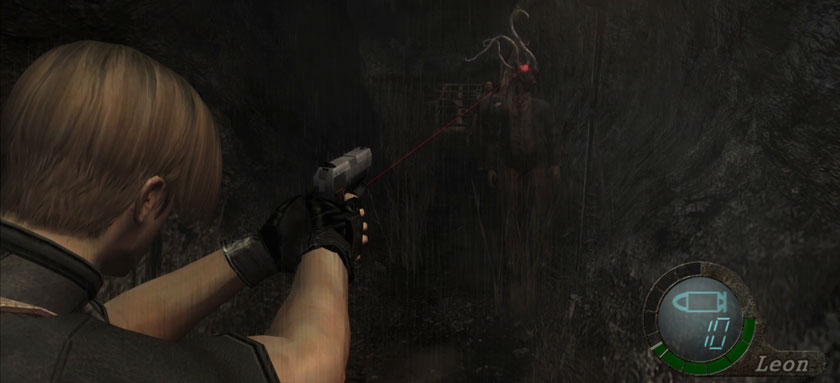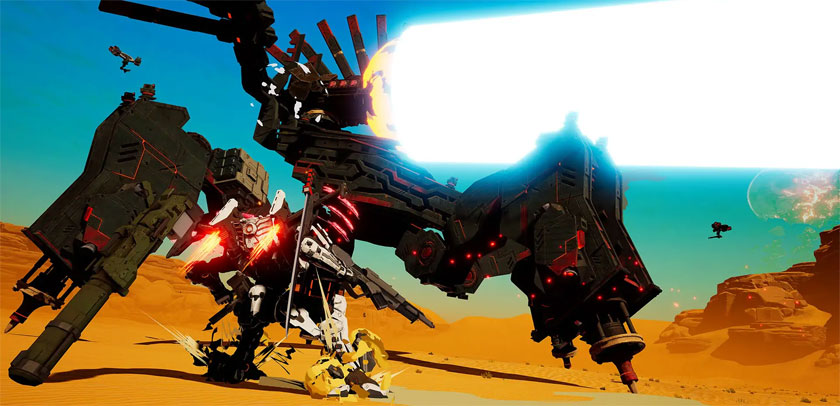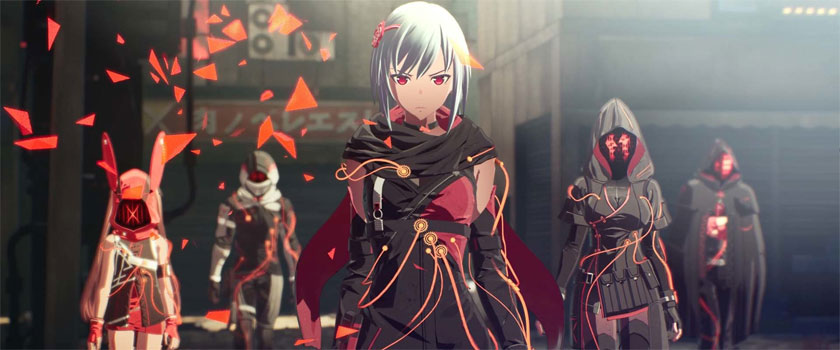2021 in Review: Replayability and Game Pass

I don’t know the last time I spent so many hours playing games in a single year as I had this one, but it still wasn’t enough to get to all the titles I yearned to play. Admittedly, 2021 was overall a more positive experience for me than 2020 had been despite continued struggles to better balance mental health and all that other lame junk. Whether I’ve steadily been doing better on that front or the greater quantity of top notch releases are the primary reason it was a better year remains a mystery. All I know is I’ve even had a good time with some of the year’s greater let downs or disappointments.
That I became more invested in streaming games may have also contributed to my enjoyment. I was able to exercise some creativity in overlays, broadcasting myself creating the sort of cartoonish artwork that I hadn’t been drawing in a long time, and even figuring out a method of transitioning the Eh! Steve! Podcast to video. It has allowed me to connect with others via the platform, and has now given me a way to collaborate with Shamus Young. While a good chunk of my gaming time is still done as a solitary experience, streaming has helped me remain social, which has been especially useful as the old Destiny 2 fireteam has all but disbanded.
What I wish to discuss, however, are the games that really helped shape this year for me. Before I discuss specific releases or studios, I’d like to go over some of the broad strokes of games discovery, gaming habits, and my approach to purchases and games completion. This is the year that I’ve put my money where my mouth is in terms of declarations of what is and isn’t a better manner to spend one’s time, and it has ultimately contributed to why I’ve felt all the more positive towards the hobby in 2021. It will be interesting to look back at the end of next year and see if many of these habits will have only grown or will continue to ring true.
Three years ago I had written an essay on the replayability of games. Since then I have continued to devote more and more time to not only returning to old games I knew and loved, but to also comfortably dive back into a newer game I had already beaten just for the sake of enjoying it some more. In fact, my favorite games of the year were both titles I had chosen to play through multiple times. Since the initial writing of that essay, I have become more convinced of the necessity of not only replaying games, but of a game’s replayability proving its excellence and worth.
On one hand, this is one of the reasons I had played fewer new games than I’d have liked this year. Instead of playing a number of indies that had been releasing, I was instead going back and replaying Resident Evil and its transformative sequel Resident Evil 4; I had streamed co-op sessions of Dead Space 3 and Halo 4 with my friend Zack; I jogged my memory on No More Heroes and No More Heroes II: Desperate Struggle before the long-awaited third entry released; I ran through Bloodborne and Bloodstained: Ritual of the Night again just for fun; I used the Pixel Remaster of Final Fantasy IV as an excuse to run through what is, perhaps, the foundation for my current passion for the medium one more time.

The month of June was effectively spent playing Resident Evil games.
Frequently, both with friends and with strangers, I’ve run into this notion that no one goes back to replay, reread, or rewatch old favorites simply because there’s “too much” to keep up with; that there’s not enough time to enjoy both the old and the new and therefore one must be sacrificed. What I discovered in 2021 more than anything else is that it is better to compromise much of the new in order to ensure time well spent with what you know. It is, perhaps, why none of the disappointments have hit as hard as they otherwise might have. Rather than feel like half of my year was games that were okay or alright, I felt as if I had a mostly steady pace of enjoyment marked with the occasional disappointment, mediocrity, or just fine-but-not-great gaming experience.
There is no doubt that I faced some disappointments. If I learned anything from Blue Fire and Shattered: Tale of the Forgotten King, it’s that even indie developers are able to put together trailers that make their games look far more polished than they are in actuality. I managed to complete the former title on stream, and while it was enjoyable enough it also proved to be frustrating at times and forgettable in the long-run. Shattered: Tale of the Forgotten King, on the other hand, was a janky experience whose level-up mechanics were perhaps the most inconvenient and most harsh I’d seen in a Souls-like game. I wanted nothing more than to quit early as I streamed my first session of it, and was glad to be done playing it once I shut the stream down. Such a game is not worth spending more time on.
This has made judging the worthiness of a game purchase all the more difficult, as there are many indie titles that look good but don’t necessarily play well. On the other hand, there are also games that are mechanically tight, but whose experience is otherwise padded or marred by other detriments of design. Daemon Ex Machina was a title I had yearned to finally get my hands on after having enjoyed its Nintendo Switch demo back in 2019, but the full experience was plagued by bland, samey mission design dragged out by a nonsensical narrative populated with far too many uninteresting or irritating characters. By the game’s end, I had lamented that it hadn’t been filled with fewer missions focusing on more unique boss fights and set pieces, as those had a tendency to be the real highlight.
Which, perhaps, leads me to the final lesson learned in terms of purchasing games: those that are fine but lack staying power. I had expected Persona 5 Strikers to be right up my alley after I had enjoyed the hack-and-slash cross-over of Fire Emblem Warriors, but I barely made a dent into it before forgetting it was in my Steam library gathering dust. Nier: Replicant was not too different, though I had at least already beaten the original of that game on the Xbox 360 nearly a decade ago. The pressure to complete that was not as strong since I’d played the game before.

Daemon X Machina barely had any highs in what was ultimately a plateau of experiences.
Nonetheless, each was a full-price purchase that went towards a title I never finished. I don’t like spending my money in such a manner, nor my time if I can help it. If the greatest games to me are those that demand replaying, then a game I cannot even finish is the antithesis of the ideal. It does not mean the games themselves are bad; this is obviously not the case with Nier: Replicant, which I honestly dropped less due to the gameplay quality and more because of all the games and health issues that had interrupted my time with it. What it does mean is some games and gaming experiences stick with me better than others.
Which is what leads me to Microsoft’s Game Pass. Earlier this year I wrote a lengthy essay comparing Microsoft’s strategy against Sony’s, primarily consisting of my thoughts and feelings towards their Game Pass subscription service. I still have misgivings regarding the implications of game value from such a service and the increased perspective of games as disposable, but I cannot deny that it has begun to impact my purchasing habits. Most notably, I had already noticed Microsoft had a decent relationship with Bandai Namco, and so I decided to wait until Scarlet Nexus was playable on Game Pass rather than purchase it on Steam. My wait was rewarded far sooner than I expected, and I now am wondering if I ought to similarly wait for Tales of Arise to make a similar jump.
Not that there’s any guarantee such a thing will occur. I have a strong feeling Game Pass may be a manner in which certain companies try to squeeze extra cash out of the initial sales period of their titles, and the sooner a game winds up on Game Pass the more swiftly that game’s sales plummeted. Tales of Arise may not see Game Pass nearly as quickly as Scarlet Nexus due to its already successful sales numbers and increased praise and word of mouth – especially now that it has won best RPG of the year from the Game Awards. Nonetheless, I’m still holding back from snagging the game on a sale due to the off-chance it may show up on Game Pass in the next few months.

I may not have even played Scarlet Nexus this year had it not been for its inclusion on Game Pass.
I am now in a position where I look at a game and wonder if it is Game Pass material before deciding if I want to purchase it, or if I even wait to see how deep of a discount it might go on during the holidays. This has not stopped me from purchasing certain games such as Touhou Luna Nights on Steam because I enjoyed it so much on Game Pass, but it certainly gives me an option to try before I buy like the rental days of old.
It has also caused me to better appreciate Microsoft’s strategy in the wake of Sony’s increase in prices as well as their and Epic’s insistence on platform exclusivity. It is due to their exclusivity that I skipped The Pathless and The Last Campfire in 2020, and while they both released onto Steam in 2021, they did so at a time I was not able to give them attention. I would have been more likely to have bought and played them when they first launched if they’d simply been on more platforms. The only game for which I broke my decision to give Sony no further money was to support Kena: Bridge of Spirits as it looked right up my alley. It certainly was an enjoyable game, but it was also flawed and frustrating, and in the end I wish I had stuck to my convictions and waited for its platform exclusivity to end – even if it meant the possibility of skipping out on Kena altogether, just as I still have yet to touch The Pathless or The Last Campfire.
With Microsoft, I can play their first-party games on PC or on my Xbox console, and I don’t have to pay $70 a pop. It is those rising prices of the next generation that make Game Pass look all the more appealing every day.
As I had stated, there were plenty of games I did not get to in 2021 but hope to in 2022, particularly on stream. Most of them are indie titles such as Smelter, Ender Lilies, Dreamscaper, Steel Assault, Dark Deity, and Greak: Memories of Azure. There are also games such as Ys IX: Monstrum Nox that I’ve been meaning to get to for months but require such a deep time investment that they kept getting put off. Normally, knowing there were so many potential greats left unplayed would leave me feeling as if there are obvious holes in my end-of-year list of favorites.
However, 2021 was not any other year. There were a lot of excellent titles, and one studio in particular stood out among them. I’ll be discussing them in the next year-in-review write-up.


